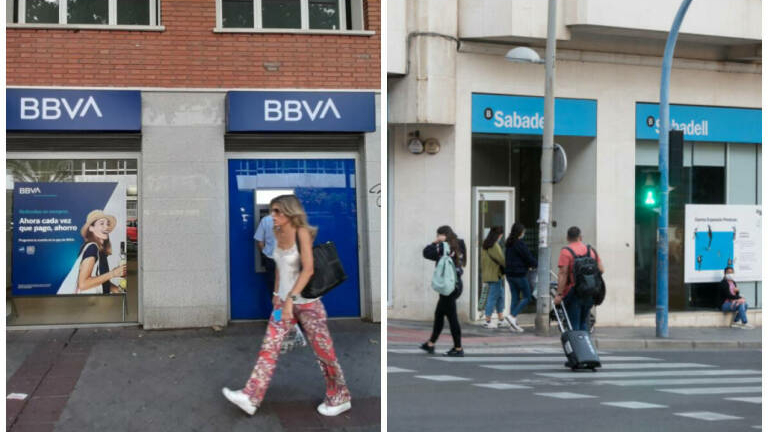The competition will take months to analyze the possible merger of BBVA and Sabadell.

VALENCIA (EFE). The National Markets and Competition Commission (CNMC) will take several months to complete its analysis of a possible merger between BBVA and Banco Sabadell if the takeover bid is successful, even if there is no need to go beyond the first stage of the study. .
The CNMC, as explained on its own website, monitors concentration of companies as it may increase the risk of increased market power or price increases, and these types of transactions are usually suspended until Competition resolves them.
After a second unsuccessful purchase attempt, BBVA announced on May 9 that it would launch a takeover bid with the intention of gaining control of Banco Sabadell and subsequently integrating it into its group.
This purchase offer, addressed directly to Sabadell shareholders, requires the prior approval of the National Securities Market Commission (CNMV) and the Bank of Spain, but since BBVA also seeks to integrate the acquired stake into its group, the bank will also need permission to compete.
Last Friday, May 31, BBVA asked the CNMC for approval, but the competition will need several months to analyze the market impact of this possible merger, which, on the other hand, requires final approval from the Ministry of Economy.
Once BBVA submits an application, the CNMC will begin examining it, and the Competition Law establishes a merger control procedure in one or two stages.
In the first stage, which theoretically lasts a maximum of one month, to which possible suspensions must be added, the CNMC will analyze the operation and its board will decide whether the merger should be authorized (with or without obligations) or otherwise a more detailed analysis is required.
Most transactions are approved at this stage, CNMC itself admits. This happened, for example, with the merger of CaixaBank and Bankia, the largest concentration operation in Spanish financial history, which received the go-ahead, albeit with conditions, in this first phase, which lasted four months.
Second phase
However, if the CNMC identifies competitive issues in the potential BBVA-Sabadell merger that require further analysis, a second phase will be launched with an even more thorough analysis, which typically includes consultation with interested third parties.
The CNMC Board decides whether the concentration should be authorized or requires approval, taking into account the obligations proposed by the acquirer to authorize its activities.
In the event that the commitments are not sufficient to address the competition issues identified by the CNMC, its board may impose conditions that complement or even replace the commitments proposed by the buyer.
Now, if there are no obligations or conditions to address the identified competition issues, the CNMC can prohibit the concentration.
During 2022, Competitor made 102 merger decisions, the highest number since 2016: only three of them progressed to the second stage; four were approved with commitments; two were referred to the European Commission; four were archived; and the remaining 89 were sanctioned in the first stage and without any obligations.
The last word
With the entry into force of the Competition Act 2007, government intervention in the control of concentration transactions has been significantly limited.
Authorization for operations lies exclusively with the CNMC, and only if a specific operation is prohibited or subject to obligations in the second stage, the Ministry of Economy can decide to refer it to the Council of Ministers.
In this case, within a month it may deviate from the CNMC proposal, but not due to competition criteria, but rather due to another nature, such as, for example, national security, environmental protection or the promotion of innovation.
However, although the CNMC approved the possible merger of BBVA and Sabadell in the first stage, the government has an additional provision in the bank solvency law that leaves final approval in the hands of the Ministry of Economy.
And so far, the head of this portfolio, Carlos Bodi, has repeatedly demonstrated his opposition to the integration of Sabadell into the BBVA group.
